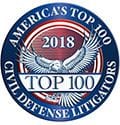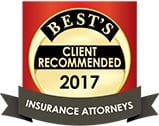Premises liability is the area of the law that concerns torts that happen due to property conditions. For example, when a New Yorker slips and falls on a wet patch of floor at the store, they may have a claim for their losses due to the negligence of the store and its management. Whether an individual may have a claim against a business will depend on many factors concerning the situation in which their alleged accident occurred.
One of those factors is foreseeability, or the likelihood that an accident may happen based on the conditions present. Businesses can reduce their chances of facing premises liability claims by proactively fixing and addressing property conditions that may foreseeably cause injuries. No part of this post should be read as legal advice, and all entities that are facing premises liability claims can benefit from seeking the counsel of attorneys who provide tort defense services.
What is foreseeability?
Foreseeability is a complex term. It refers to the quality of an event having a certain and predictable outcome or consequence. For example, if a person chooses to drive their car with a blindfold on, it is foreseeable that they may cause an accident due to their inability to see. In the context of premises liability, the above-mentioned example of a wet store floor may be an event with the foreseeable consequence of a slip-and-fall accident as water can be hard to see and is slippery when stepped on.
Why does foreseeability matter?
Foreseeability is important in premises liability claims because property owners generally have a duty to fix, repair, or warn about dangers that foreseeably hazardous to those who come upon their land or into their buildings. If an individual suffers a property-based accident that the property owner knew about or should have known about and foreseeably could harm someone, that property owner may be liable for the individual’s injuries.
If, though, a person gets hurt on another party’s property in a manner that is not foreseeable based on property conditions, the property owner may not be liable for the other’s losses. An individual whose own negligence causes their harm generally does not have a premises liability claim against the owner of the property where their accident took place.
Foreseeability is one factor that can influence the outcome of premises liability claims. Entities facing these cases do not have to fight their defenses alone. Attorneys can support and advocate for their clients in premises liability defense lawsuits.






